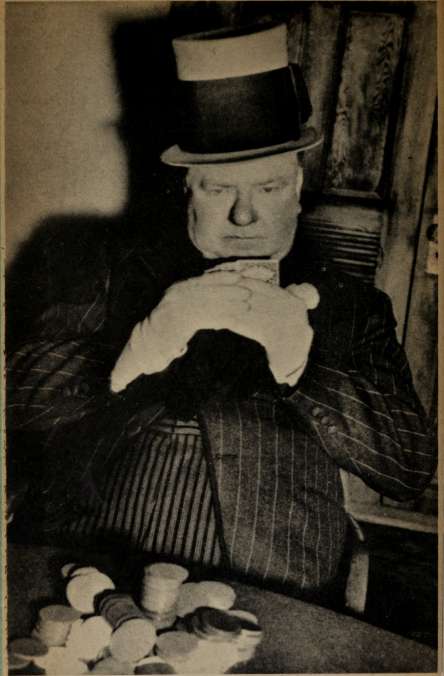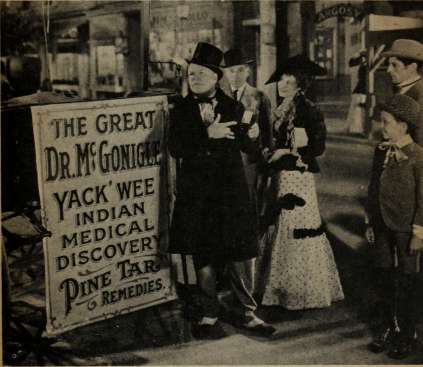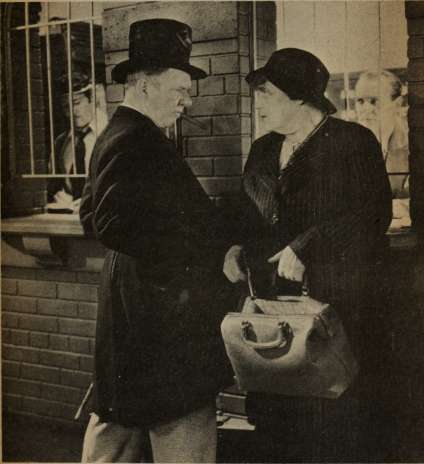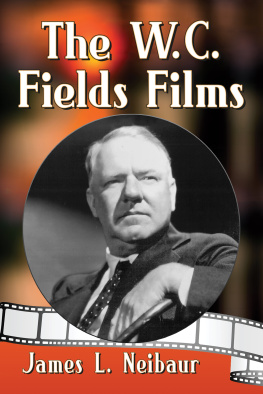Published by
DELL PUBLISHING CO, INC.
750 Third Avenue New York, New York 10017
Copyright 1939, 1940 by Dodd. Mead it Company, Inc. Copyright renewed 1967, 1968 by W. Claude Fields, Jr. Copyright 1971 by Michael M. Taylor
All rights reserved. No part of this book may be reproduced in any form without permission in writing from Dodd, Mead & Company, Inc.
Dell TM 681510, Dell Publishing Co, Inc.
Reprinted by arrangement with Dodd, Mead it Company, Inc.
New York, New York 10016
Printed in the United States of America First Dell printingAugust 1972
Acknowledgment by W.C. Fields for Original Edition
Without the aid and suggestions and collaboration, the hammering and shoving of Charles D. Rice, Jr., this book would never have been written. If there are any complaints, please address them to Mr. Rice personally.
Acknowledgment is made to This Week for the portions of the text which ran in that magazine.
The Editor wishes to thank the following for their cooperation and assistance in the preparation of this volume: The Academy of Motion Picture Arts and Sciences, Hollywood, California; the special collections library of the University of California at Los Angeles; the film department of the Library of Congress; the movie history library of the University of Texas; the New York Library for the film at Lincoln Center; Mr. Donald Deschner; MCA Entertainment, Inc., for permission to use the many photographs from movies produced by Universal Pictures and Paramount Pictures; Metro-Goldwyn-Mayer; and finally Ilze Kupris who put up with my many moods through most of this.
M. M. T.
Chapter 8
"How to Succeed in Business"

My Little Chickadee ( 1940, Universal Pictures)
Most interesting of Fields' business practices was his outrageous system of banking. He made it a habit to open an account in most of the large cities he visited, and he often opened them under assumed names (Mahata Kane Jeeves, Otis Criblecoblis, etc.). Whether he did this to hide his money from greedy relatives or from the government, or just to assure himself that getaway money was always nearby was never entirely clear. For whatever the reasons, his system was quite novel.
Once in 1944 a friend questioned him on his procedures while examining a few dozen of his hundreds of bank books. Fields confided that he even had about $50,000 spread around war infested Germany. "But why?" inquired the astonished friend. "In case that little bastard wins!" gargled the crafty Fields.
ANY OF US who are over twelve years of ageand a great many of us are over twelve years of agemust surely remember the fateful year of 1929. Many world-shaking events took place in 1929, including Mrs. Gann's great White House victory, and Mrs. Gene Tunney's appendectomy. Also, Shirley Temple was born and Clyde Van Deusen won the Kentucky Derby.
Of course these memorable happenings are imprinted indelibly in the minds of all Americans. But one other important thing occurred in October of 1929 that was barely noticed at the time and has been all but forgotten since. I refer to certain irregularities in some of Wall Street's finest stocks.
Now, about a week after this curious mishapone witty city editor dubbed it "The Crash"I was dining with several of the nation's greatest financial wizards at the Automat. We were all in a pensive mood, and in the course of conversation the president of a vast department-store chain addressed me. "Mr. Fields," he asked, fumbling in his pockets for an after-dinner cigar butt, "what in your mind has occasioned the recent upset in the market?"
"Gentlemen," I began, in a stern but not unkind tone, "the whole trouble is a simple and fundamental one: briefly, you have tried to sell the American people more than they could pay for."
Each of the moguls nodded their gray pates abashedly.
"I could have told you several years ago," I continued, "that you were heading for this catastrophe. Let me recount an ingenuous little anecdote to illustrate the point. It all began twenty years ago when I first learned the fundamental rule of business success from one of the most astute economics experts who ever trod this green earth. He was a homespun geologist by the name of Doctor George T. Spelvin, and he had amassed a goodly fortune from the sale of several dozen oil wells situated in the middle of the Great Salt Lake. His crude but sound success formula was as follows, stated in his quaint Yankee dialect:
1. Find out how much they gut.
2. Git it.
3. Git!
" .. he had amassed a goodly fortune from the sale of several dozen oil wells situated in the middle of the Great Salt Laker."

The Old Fashioned Way ( 1934, Paramount Pictures)
"In the course of my very first business venture, gentlemen, I learned how very true old Doctor Spelvin's philosophy was. I took a flyer in vacuum-cleaner selling, and on my initial day of canvassing I came across a household that looked like a capital prospect, for through the window I could see a lady busy cleaning the living-room carpet with an old-fashioned carpet sweeper. I knocked at the front door and introduced myself with my never-failing gallantry. The lady seemed skepticalsaid not a word. 'Madam,' I said, 'allow me to demonstrate this miraculous contrivance.' Whereupon I brought the vacuum cleaner in and fell to work upon the living room. I toiled over that carpet until it was clean enough to eat offthough a regular table would have been more comfortable, I'll admit. The lady, however, merely stared.
"My stick-to-it-iveness asserted itself and I spent another half hour on the dining-room rug. Still there was no word of approval forthcoming. Determined not to lose a possible sale, I carried the apparatus upstairs and spent the rest of the morning on the bedroom rugs. But silence still greeted my efforts.
"Finally I lost patience. 'Madam,' I gasped, 'will you tell me one thingare you or are you not interested in purchasing this machine?'
"'Well, mister.' she replied, 'you'll have to wait til the missus gets homeI only came in to clean.'"
Upon the conclusion of my tale, several of the tycoons drew out their handkerchiefs and wept a little. It was a moving sight. "How true," they whispered. "How very true! Fields, if we had only understood this great principle before...."
"I knocked at the front door and introduced myself with my never-failing gallantry."

Tilly and Gus ( 1933, Paramount Pictures)
Of course it was inevitable that my advice fell on deaf ears in one case. He was a motorcar mogul, and several years after the Automat episode, he defied my stated fundamentals by okaying automobile sales to 5,000 purchasers whom he believed to be W. P. A. workers. It turned out that they were only ordinary job holders and could not meet the payments.
But let us get down to the more definite problems of the moment. For instance, how should the young man just out of college go about insuring himself of a successful career in the present-day business world?

![Cavett Dick Fields for President [UC]](/uploads/posts/book/171473/thumbs/cavett-dick-fields-for-president-uc.jpg)












